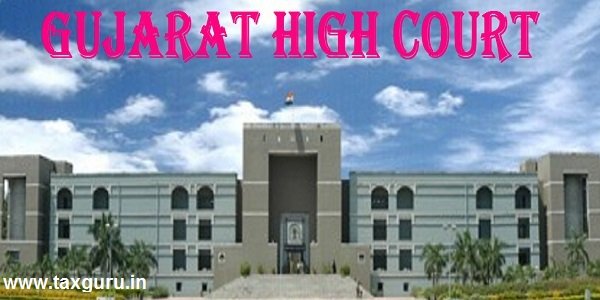Ujala Dyeing And Printing Mills Private Limited Vs DCIT (Gujarat High Court)
The Gujarat High Court addressed a case where Ujala Dyeing And Printing Mills Private Limited inadvertently made an error in their income tax return filed on September 24, 2018, while claiming a refund of ₹38,08,115. The petitioner wrongly disclosed disallowable expenditures in column 23 instead of the correct columns 15 and 18 of the return. The Centralized Processing Center (CPC) issued an intimation on September 3, 2019, pointing out this mismatch with the Tax Audit Report. This intimation was received by the petitioner after the deadline for filing a revised return, which was March 31, 2019, had already passed. In response to the CPC’s intimation, the petitioner filed a corrected return on September 6, 2019, rectifying the column error while the total income remained unchanged. Subsequently, the petitioner applied for condonation of the delay in filing the corrected return under Section 119(2)(b) of the Income Tax Act, 1961. However, this application was rejected by the tax authorities, compelling the petitioner to seek recourse from the Gujarat High Court.
The primary argument presented before the High Court on behalf of the petitioner was that the error was purely a misclassification of disallowable items in the return columns, without any impact on the actual tax liability or causing any loss to the revenue. It was contended that the rejection of the condonation of delay application under Section 119(2)(b) caused genuine hardship to the petitioner, as a substantial refund was being withheld due to a mere procedural mistake. The court examined the provisions of Section 143(1)(a) of the Act and the Centralized Processing of Returns Scheme, 2011, which outline the process for handling discrepancies in tax returns. The court noted that the CPC itself had identified the mistake and prompted the petitioner to respond. Given that the petitioner promptly filed a corrected return upon realizing the error after the revised return deadline, the court found the rejection of the condonation application to be unjustified. The High Court emphasized that the mistake was technical and did not affect the tax payable or refundable. Consequently, the Gujarat High Court ruled in favor of the petitioner, quashing the order under Section 119(2)(b) and directing the respondents to process the corrected return in accordance with the law, thereby allowing the petitioner’s legitimate refund claim to be considered.
FULL TEXT OF THE JUDGMENT/ORDER OF GUJARAT HIGH COURT
1. As both these petitions are identical, for the sake of convenience, Special Civil Application No.12718 of 2024 is considered as a lead matter.
2. Rule, returnable forthwith. Learned Senior Standing Counsel Mr. Karan Sanghani waives service of notice of Rule on behalf of the respondents.
3. By this petition under Articles 226 and 227 of the Constitution of India, the petitioner has prayed for the following reliefs:
“(A) Your Lordships may be pleased to issue a writ of certiorari or a writ in the nature of certiorari or any other appropriate writ, order or direction thereby directing the Respondent to grant the refund of Rs.15,61,884/- due to the Petitioner along with statutory interest.
(B) Your Lordships may be pleased to issue a writ of certiorari or a writ in the nature of certiorari or any other appropriate writ, order or direction for quashing and setting aside the impugned order dated 24.08.2023 passed by the Respondent at Annexure ‘L’.
(C) By way of ad-interim relief, your Lordship may direct the Respondent to accept the Petitioner’s corrected return, so that the Petitioner does not have to pay interest on delayed filing of return.
(D) The Hon’ble Court may issue directions to Respondent to direct the concerned Assessing Officer to accept the Petitioner’s corrected return and process the same in accordance with law.”
4. The petitioner is a private limited company. The petitioner filed the return of income under Section 139(1) of the Income Tax Act, 1961 (for short, the Act) on 24/09/2018 along with the Tax Audit Report in Form 3CA and 3CD dated 25/08/2018 showing total income of Rs.81,85,340/- and claiming refund of Rs.38,08,115/- after adjustment of the tax paid of Rs.59,09,879/- and TDS of Rs.21,01,764/-. On 03/09/2019, the petitioner received an intimation from Centralized Processing Center (CPC) pointing out the mismatch in the form of return filed by the petitioner being the difference in the amount of dis-allowance of expenditure reported in tax audit report in Form 3CD but not taken into account in computing the total income in the return filed as the petitioner has clubbed the dis-allowance of expenditure in column-23 instead of column-15 and column-18.
5.3 On receipt of the above intimation, the petitioner filed corrected return of income after making corrections by showing dis-allowance of expenditure in correct column-15 and column-18 in the form of return by bifurcating the same from column-23 and total income of the petitioner remained unchanged.
6. It is the case of the petitioner that the last date for filing the revised return as per Section 139(5) of the Act was 31/03/2019 and as the petitioner had received intimation on 03/09/2019 i.e. after the expiry of the time limit available for filing revised return, the petitioner had no option but to file the corrected return online in electronic mode as per the intimation received from the CPC.
7. It appears that the CPC instead of processing the return either by making adjustment in the original return or by accepting the corrections as per the corrected return dated 06/09/1999 filed by the petitioner considered the corrected return as belated revised return filed by the petitioner and forwarded the same to the Jurisdictional Assessing Officer (JAO) deemed to be return filed under Section 119(2)(b) of the Act and intimated the petitioner accordingly by communication dated 23/09/2019.
8. The petitioner, therefore, on receipt of the communication dated 23/09/2019 preferred applications dated 30/07/2020 and 06/08/2020 under Section 119(2)(b) of the Act to condone the delay in filing the correct return of income so as to consider it as revised return for processing the same by the CPC.
9. The petitioner received a communication dated 10/05/2023 to furnish response on or before 17/05/2023 to show cause as to why the application of the petitioner to condone the delay should not be rejected.
10. The petitioner filed the reply dated 17/05/2023. The petitioner thereafter received the another communication dated 19/05/2023 from the respondent no.1 to furnish various documents which was responded by the petitioner by reply dated 23/05/2023.
11. Respondent no.2 thereafter rejected the application filed by the petitioner under Section 119(2)(b) of the Act and passed an order dated 23/08/2023.
12. The petitioner thereafter by letters dated 07/10/2023 and 10/02/2024 requested respondent no.1-Deputy Commissioner of Income Tax to process the original return filed by the petitioner.
13. As no response was received, the petitioner filed a grievance on 16/03/2024 before the CBDT for processing the return which was rejected on 18/04/2024. The petitioner thereafter again by letter dated 20/05/2024 requested the respondent no.1 to grant refund of Rs.38,08,120/- to the petitioner as per the original return followed by letter dated 19/06/2024.
14. As there was no response from the respondents, the petitioner has preferred this petition with the aforesaid prayers.
Submissions of the petitioner:-
15. Learned advocate for the petitioner submitted that as per the provision of Section 143(1)(a) of the Act, return is required to be processed in the manner provided therein. It was submitted that as per the proviso (1) to Section 143(1)(a) of the Act, the respondents are required to send an intimation for the proposed adjustment either in the writing or in electronic mode and as per the second proviso on the response being received from the assessee, the same is required to be considered for making any adjustment. It was therefore submitted that when the respondent had intimated the petitioner with regard to the mistakes in the return of income by communication through electronic mode on 03/09/2019, the petitioner located the error in the form of return uploaded on 24/09/2018 and as time to file revised return had already expired, the petitioner filed corrected return in Form-ITR-6 which was uploaded on 06/09/2019. It was submitted that as there were two returns on the system in electronic form, the CPC transferred the returns of income filed by the petitioner to the JAO on 24/09/2019. The petitioner was also sent an intimation to that effect. The petitioner, therefore, has preferred an application under Section 119(2)(b) of the Act for approving the revised return after condoning the delay in filing such corrected return. It was submitted that the petitioner in the applications filed on 30/07/2020 and 06/08/2020 explained the circumstances in which the petitioner had filed corrected return on 06/09/2019. It was submitted that the respondent no.2, however, without considering the facts and circumstances of the case, has rejected said applications filed by the petitioner only on the ground that there was no genuine hardship shown by the petitioner and on the ground that the petitioner had other legal recourse by filing an appeal under Section 254 of the Act or an application for rectification under Section 154 of the Act. It was however submitted that neither of the legal recourse was available to the petitioner as no intimation is issued as contemplated under Section 143(1)(a) of the Act and only recourse available to the petitioner is to file the return under Section 119(2)(b) of the Act to condone the delay in filing such corrected return. It was therefore submitted that the respondent ought to have allowed the application to condone the delay in filing the corrected return by the petitioner dated 06/09/2019 after considering the intimation issued by the CPC on 03/09/2019 as a consequence of the intimation issued by the CPC on 03/09/2019.
16. Per contra, learned Senior Standing Counsel Mr.Karan Sanghani for the respondents submitted that there is no provision under the Income Tax Act to file a corrected return in response to the intimation given to the petitioner regarding the mistakes in the return under Section 143(1)(a) proposing the adjustment. It was submitted that the petitioner ought to have waited till the intimation to be issued by the CPC under Section 143(1)(a) of the Act as per the Centralized Processing of Returns Scheme, 2011 and thereafter ought to have filed either the appeal before the CIT (Appeals) or ought to have made an application filed the rectification application under Section 154 of the Act and could not have uploaded the corrected return in response to the intimation issued under Section 143(1)(a) of the Act.
17. It was further submitted that the petitioner could not have filed the return under Section 119(2)(b) of the Act in absence of any genuine hardship as there was only a mistake committed by the petitioner while filing the original return by showing the wrong information in column-23 instead of column-15 and column-18 of the form of the return.
18. Having heard the learned advocates for the respective parties and considering the facts of the case, it is not in dispute that the petitioner had committed a mistake in showing the correct information in column-15 and column-18 and have clubbed the dis-allowance of expenditure claimed under Section 37 in column-23 which was pointed out by the CPC while analyzing the return as per the Centralized Processing of Returns Scheme, 2011 by sending an intimation dated 03/09/2019 to the petitioner to give the response within thirty days.
19. The petitioner, therefore, in response to such intimation, filed the corrected/revised return on 06/09/2019 under Section 119(2)(b) of the Act and accordingly the CPC transferred the said corrected revised return to JAO on 24/09/2019.
20. Thereafter the petitioner filed the applications to condone the delay in filing the return in July 2020 and August, 2020 which were rejected by respondent no.2 on the ground that there is no genuine hardship shown by the petitioner to revise the return.
21. As per the Centralized Processing of Returns Scheme, 2011, the Central Processing Center is formed as per Section 143(1A) and as per the power vested with the Central Board of Direct Taxes under Section 143(1A) of the Act and as per Clause-2(c) of the scheme, the center is defined as to Centralized Processing Center having jurisdiction over such return of income as may be specified by the Board.
22. Clause-8 and Clause-9 of the Scheme provides for processing of returns and rectification of mistake respectively which reads as under:
“8. Processing of Returns.-
(i) The Centre shall process a valid return of income in the following manner, namely:-
a. the sum payable to, or the amount of refund due to, the person shall be determined after credit of such Tax Collected at Source (TCS), Tax Deducted at Source (TDS) and tax payment claims which can be automatically validated with reference to date uploaded through TDS and TCS statements by the deductors or the collectors, as the case may be, and tax payment challans reported through authorised banks in accordance with the procedures adopted by the Centre in this regard.
b. an intimation shall be generated electronically and sent to the person by e-mail specifying the sum determined to be payable by, or the amount of the refund due to, the person, and
c. any intimation to the person to pay any sum determined to be payable shall be deemed to be a notice of demand as per the provisions of section 156 of the Act and all other provisions of the Act shall be applicable accordingly.
(ii) The Commissioner may, –
a. adopt appropriate procedure for processing of returns; or
b. decide the order of priority for processing of returns of income based on administrative requirements.
(iii) Wherever a return cannot be processed in the Centre for any reasons, the Commissioner shall arrange to transmit such return to the Assessing Officer having jurisdiction for processing.
9. Rectification of mistake.-
i. With a view to rectifying any mistake apparent from the record under section 154 of the Act, the Centre, on its own or on receiving an application from the person, may amend any order or intimation passed or sent by it under the provisions of the Act.
ii. An application for rectification shall be filed electronically to the Centre in the format prescribed and will be processed in the same manner as a return of income-tax.
iii. Where the rectification order results in a demand of tax, the order under section 154 of the Act passed by the Centre shall be deemed to be a notice of demand under section 156 of the Income-tax Act.
iv. In case of error in processing due to an error in data entry or a software error or otherwise, resulting in excess refund being computed or reduction in demand of tax, the same will be corrected on its own by the Centre by passing a rectification order and the excess amount shall be recovered as per the provisions of the Act.
v. Where a rectification has the effect of enhancing an assessment or reducing the refund or otherwise increasing the liability of the person, an intimation to this effect shall be sent to the person electronically by the Centre and the reply of the person has to be furnished through electronic mode only.”
23. Therefore the CPC issued the intimation dated 03/09/2019 pointing out the mistake in the return and therefore the petitioner was called upon to submit the response thereto. The petitioner having found such mistake has therefore rightly filed a corrected/revised return under Section 119(2)(b) of the Act as the time to file the revised return had already expired on 31/03/2019 as per the provision of Section 139(5) of the Act. The respondent was therefore only required to consider such revised return as there was only a correction of the mistake in the presentation of the correct figures in the column-15 and column-18 instead of clubbing the same in column-23 of the return and instead thereof, the respondent has enlarged the scope of Section 119 (2)(b) by not redressing such minor corrections to be made in the return of income and has rejected the same on the ground of genuine hardship and advising the petitioner to avail the other legal resources under Section 254 or Section 154 of the Act unmindful of the fact situation that there was no impact on the corrected return on the taxable income of the petitioner and it was only to facilitate the CPC to process the return so that the petitioner is entitled to the refund, if any, so as to compute the taxable income of the petitioner in accordance with law as provided under Section143(1)(a) of the Act. The respondent no.2 ought to have allowed the applications to condone the delay in filing the corrected/revised return which was a formality only as only the correct presentation in Form-ITR-6 was not made by the petitioner which has prevented the CPC from processing the return.
24. Such an irresponsible approach by the respondent no.2 being unmindful of the fact situation has resulted into filing of this petition causing great hardship to the petitioner preventing and denying the legitimate refund to which the petitioner was otherwise eligible to get in the year 2019 itself.
25. Considering the above fact situation and in view of the foregoing reasons, these petitions succeed and are accordingly allowed. Impugned order dated 24/08/2023 passed under Section 119 (2)(b) is hereby quashed and set aside and the delay in filing the revised return is hereby ordered to be condoned and respondent no.1 is directed to process/transmit the revised return filed by the petitioner on 06/09/2019 to CPC to process the same in accordance with law.
26. Rule is made absolute to the aforesaid extent. No order as to costs.






